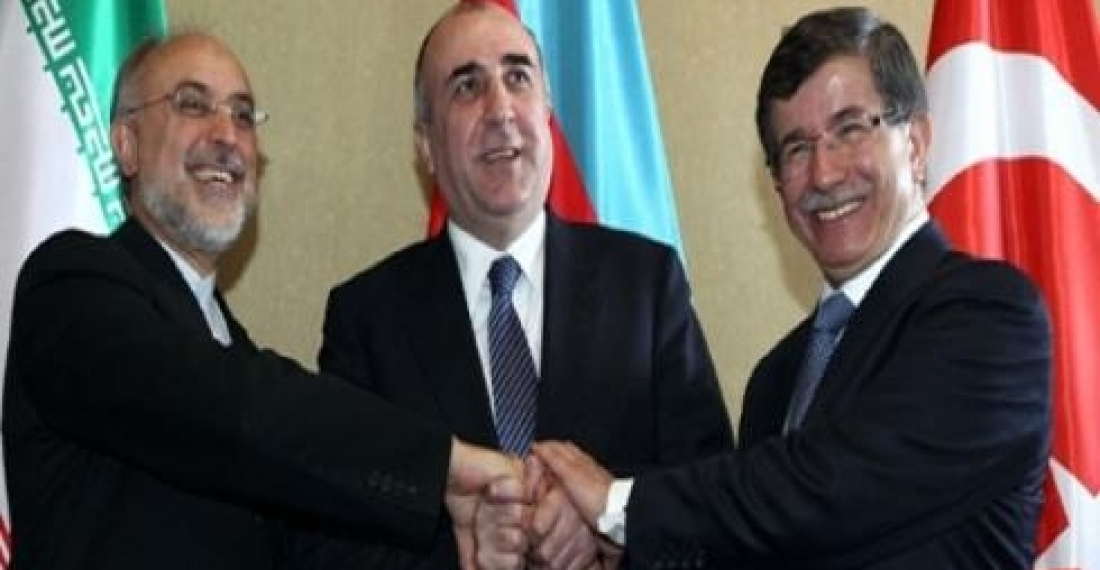"We are three, countries, three bodies in one spirit." That is how Iranian Foreign Minister Ali Akber Salehi described relations between Azerbaijan, Iran and Turkey at the end of a meeting of the Foreign Ministers of the three countries held on Wednesday, 7 March 2012 in the Azerbaijani exclave of Nakhchivan. The meeting helped to defuse tensions, particularly between Azerbaijan and Iran, following a period when the two sides openly accused each other of working against each other's interests.
Azerbaijan Foreign Minister Elmar Mammadyarov said "It was a very good meeting, informative. We covered global issues and signed a trilateral declaration."
Indeed the three sides can take some comfort from the 15 point declaration signed at the end of the meeting. On Nagorno-Karabakh the three Ministers stated that "The Parties note the importance of the earliest resolution of Nagorno-Karabakh conflict on the basis of respect for the sovereignty, territorial integrity and internationally recognised borders of states and emphasize that strengthening the maintenance of peace and stability in the region through the promotion of regional cooperation will have a positive effect in the peaceful resolution of regional conflicts and will serve to their common interests."
On the other hand the declaration also states that "The Parties express their determination not to allow their territories to be used, under any circumstances, for any threat and activity against each other which may lead to hostilites", a particularly important point for Iran which has often accused Azerbaijan of being a base for espionage activity against it.
Turkey has been very keen to narrow the differences between Azerbaijan and Iran and its Foreign Minister Ahmet Davitoglu has been the main force behind the trilateral meetings. The next meeting of the three will now be held in the Van in six months time.
The full declaration in English by the three Foreign Ministers can be read here (Turkish Foreign Ministry Web site)
source: commonspace.eu.
picture: The Foreign Ministers of Iran, Azerbaijan and Turkey at the end of their meeting in Nakhchivan on 7 March 2012 (picture courtesy of the Turkish Foreign Ministry).







